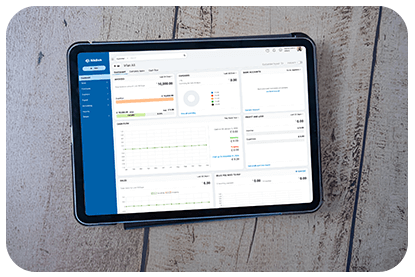19 April 2024
Small Business Expense Tracking: Tips for Financial Success
Managing finances effectively is the cornerstone of a successful small business. One of the most crucial aspects of financial management is small business expense tracking. Knowing where your money goes helps ensure your business stays profitable and can scale effectively. In this blog, we will explore key tips and strategies to help you track your small business expenses and achieve financial success.
Why Expense Tracking is Crucial for Small Businesses
Expense tracking is essential for several reasons. It offers a clear view of your financial activity, making it easier to satisfy tax responsibilities. Without this clarity, making well-informed decisions becomes challenging
Here’s why it matters:
- Financial Insight: Tracking expenses helps you know exactly where your funds are going and where adjustments can be made.
- Tax Preparation: Accurate records make tax filing easier, ensuring you don’t miss out on deductions.
- Budgeting and Planning: By analyzing your expenses, you can set realistic budgets and plan for the future.
Tips for Expense Tracking Small Business
Managing expenses doesn’t have to be complicated. Here are some practical tips to help you streamline the process and stay on top of your business finances.
1. Categorize Your Expenses
The first step to efficient expense tracking is categorizing your expenses. Arrange them into organized groups.
- Office supplies
- Marketing expenses
- Utilities
- Employee salaries
By categorizing your expenses, you can more easily spot patterns in spending, helping you identify areas where you might reduce costs.
2. Use Accounting Software
Accounting software can automate many of the tasks associated with expense tracker apps, saving you time and minimizing errors. Popular accounting tools like QuickZeros, FreshBooks, and Xero can sync with your bank account to automatically track expenses and generate financial reports. These tools are designed to simplify your financial management, and they provide a clear overview of your business’s cash flow.
3. Keep All Receipts and Documentation
For accurate expense tracking and tax purposes, it’s important to keep all receipts and financial documentation. Most accounting software offers the option to take pictures of receipts and upload them directly, simplifying the organization process.
4. Separate Business and Personal Finances
To avoid confusion and simplify your tracking efforts, make sure your business and personal finances are kept separate. Open a dedicated business bank account and use business credit cards exclusively for company expenses. This ensures that all transactions are clearly identifiable, making it easier to manage and track.
5. Reconcile Your Accounts Regularly
Reconciling your accounts is essential to ensure your financial records match up with your actual bank account statements. Regular reconciliation can help identify discrepancies early on and make it easier to spot potential issues. Set a schedule to reconcile your accounts weekly or monthly, depending on the volume of transactions in your business.
6. Set a Regular Expense Review Schedule
To stay on top of your expenses, set a routine for reviewing them. Regularly evaluate where your money is going, and analyze spending trends. A monthly or quarterly review will help you spot areas where you might be overspending or where adjustments could be made to improve profitability.
7. Understand Tax Deductions
Accurate tracking of business expenses is crucial for maximizing tax deductions. As a small business owner, you can deduct various expenses, including:
- Business-related travel and meals
- Office supplies
- Marketing and advertising costs
- Equipment and software
Make sure you are aware of which expenses are deductible and track them accurately to ensure you maximize your potential tax savings.
Several tools can help automate and simplify your expense tracking efforts. Some popular options include:
QuickZeros
QuickZeros is one of the most popular accounting software tools for small businesses. It automates many aspects of financial management, including expense tracking, invoicing, and reporting. QuickZeros (www.quickzeros.com) integrates with your bank accounts, categorizing expenses and helping you stay organized with minimal effort.
Wave Accounting
Wave is a free accounting software that offers features like expense tracking, invoicing, and financial reporting. It’s an excellent option for small businesses on a budget and provides all the basic features needed to track and manage expenses efficiently.
Expensify
If you have employees who travel frequently or need to make business-related purchases, Expensify is a great option. Expensify allows employees to scan and upload receipts directly from their mobile phones, making it easy to track and manage business expenses on the go.
Avoiding Common Expense Tracking Mistakes
Even the most reliable tools can’t guarantee perfection Here are some common pitfalls to avoid:
- Failing to track every expense: Even small expenses can add up over time. Record every transaction to ensure accurate financial records.
- Mixing personal and business expenses: Always keep your business expenses separate to make tracking easier and prevent confusion.
- Not reconciling accounts: Regular reconciliation is necessary to ensure that your financial records match your bank statements.
- Delaying expense reporting: Input expenses regularly to avoid missing or forgetting transactions.
Conclusion
Small business expense tracking is an essential skill for financial success. By implementing the right tools, processes, and habits, you can maintain control over your finances, improve profitability, and make smarter decisions for your business. With careful tracking, you can optimize your spending, reduce costs, and ultimately set your business up for long-term growth.
Follow these tips for effective expense tracking and watch as your small business thrives financially!




